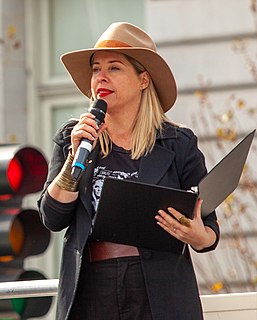A Quote by Fred Wilson
Certainly anything that is news or opinion needs to be free on the Web, because the Web is this very fluid medium that is very much driven by links and the flow of visitors through a discussion via links.
Related Quotes
What I think is coming instead are much more organic ways of organizing information than our current categorization schemes allow, based on two units - the link, which can point to anything, and the tag, which is a way of attaching labels to links. The strategy of tagging - free-form labeling, without regard to categorical constraints - seems like a recipe for disaster, but as the Web has shown us, you can extract a surprising amount of value from big messy data sets.
The 10th Annual Webby Awards represent an extraordinary opportunity to celebrate the evolution of the web from an esoteric medium to the driving force shaping popular culture, business, and society today, .. As the web enters its second decade as an integral part of everyday life, our expanded categories recognize those who are pushing the web in exciting new directions.

































